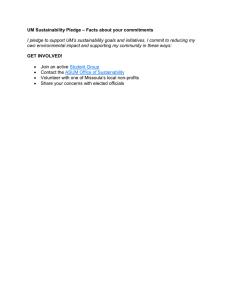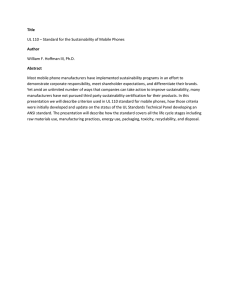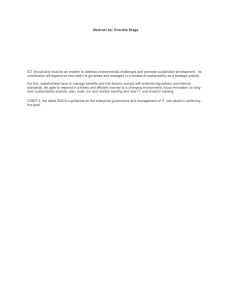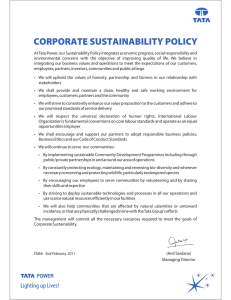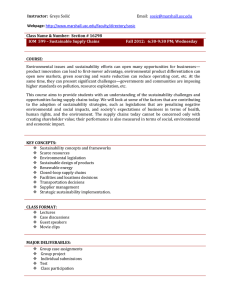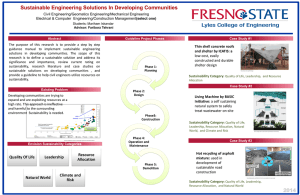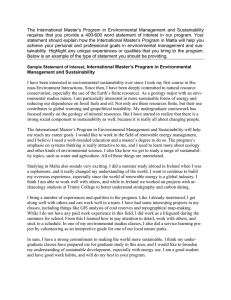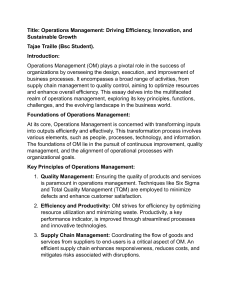URB 645, SUMMER 2014 Course Title: URBAN SUSTAINABLE DEVELOPMENT
advertisement
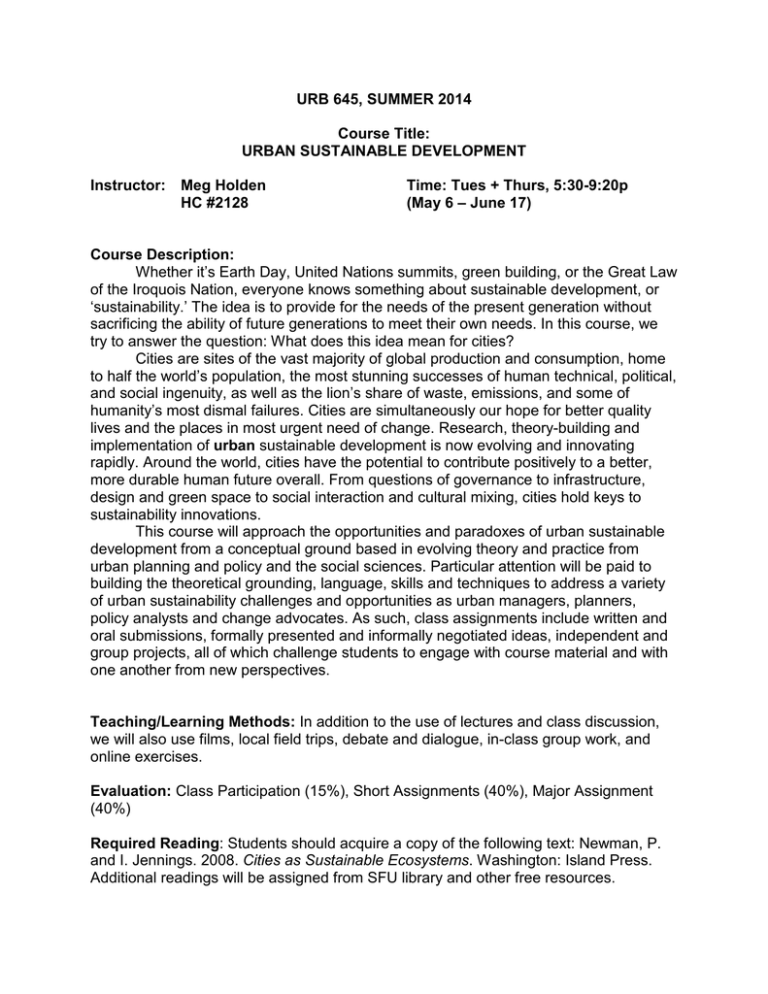
URB 645, SUMMER 2014 Course Title: URBAN SUSTAINABLE DEVELOPMENT Instructor: Meg Holden HC #2128 Time: Tues + Thurs, 5:30-9:20p (May 6 – June 17) Course Description: Whether it’s Earth Day, United Nations summits, green building, or the Great Law of the Iroquois Nation, everyone knows something about sustainable development, or ‘sustainability.’ The idea is to provide for the needs of the present generation without sacrificing the ability of future generations to meet their own needs. In this course, we try to answer the question: What does this idea mean for cities? Cities are sites of the vast majority of global production and consumption, home to half the world’s population, the most stunning successes of human technical, political, and social ingenuity, as well as the lion’s share of waste, emissions, and some of humanity’s most dismal failures. Cities are simultaneously our hope for better quality lives and the places in most urgent need of change. Research, theory-building and implementation of urban sustainable development is now evolving and innovating rapidly. Around the world, cities have the potential to contribute positively to a better, more durable human future overall. From questions of governance to infrastructure, design and green space to social interaction and cultural mixing, cities hold keys to sustainability innovations. This course will approach the opportunities and paradoxes of urban sustainable development from a conceptual ground based in evolving theory and practice from urban planning and policy and the social sciences. Particular attention will be paid to building the theoretical grounding, language, skills and techniques to address a variety of urban sustainability challenges and opportunities as urban managers, planners, policy analysts and change advocates. As such, class assignments include written and oral submissions, formally presented and informally negotiated ideas, independent and group projects, all of which challenge students to engage with course material and with one another from new perspectives. Teaching/Learning Methods: In addition to the use of lectures and class discussion, we will also use films, local field trips, debate and dialogue, in-class group work, and online exercises. Evaluation: Class Participation (15%), Short Assignments (40%), Major Assignment (40%) Required Reading: Students should acquire a copy of the following text: Newman, P. and I. Jennings. 2008. Cities as Sustainable Ecosystems. Washington: Island Press. Additional readings will be assigned from SFU library and other free resources.


